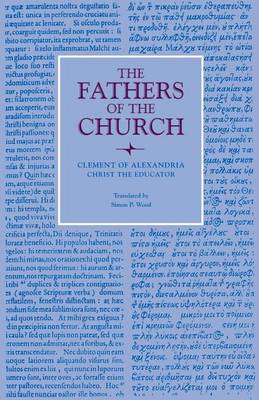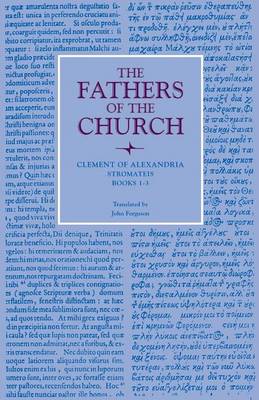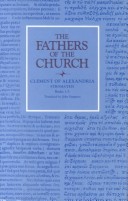Fathers of the Church
3 total works
Titus Flavius Clemens Alexandrinus (ca. A.D. 150-215) wrote the Stromateis, possibly the third work in his trilogy--the Protrepticus, the Paedagogus, and the Stromateis--to direct Christian Gnostics toward the third stage of philosophy--gnosis. For Clement the only true gnosis was that which presupposed the faith of the Church, that is, apostolic and divinely revealed. But for Clement the ideas of Greek philosophy were also a divine gift to mankind. All of his writings reflect this reconciliation of faith and knowledge.
The full title of the Stromateis is Miscellanies of Notes of Revealed Knowledge in Accordance with the True Philosophy, and the word stromateis itself means a kind of patchwork quilt. Clement describes the work as a somewhat unorganized collection of flowers or trees that have grown together naturally. Of the eight books some are fragmented or incomplete, but all show Clement as philosopher, theologian, and biblical commentator.
Books One to Three in this volume all revolve around the relation of Christian faith to Greek philosophy. In Book One Clement defends a philosophy as given by God, a "preparation paving the way for him who is perfect in Christ" (Strom. 1.5.28). In Book Two he defends faith against the philosophers as the way to truth. Book Three explores the question of Christian marriage or true gnosis, while refuting the religious and moral principles of the false gnosis, that is, fornication and adultery. Within this book is a unique and beautiful exposition of "two or three gathered together" as husband, wife, and child.
Books One to Three of the Stromateis establish Clement's fundamental theology--a harmony of faith and knowledge that places Greek philosophy at the service of faith, which is, to Clement, more important than knowledge. Articulated in allegorical exegesis rather than literal interpretation, this interplay of philosophy and religion was the hallmark of the School of Alexandria. There Clement studied with Pantaenus and succeeded him as head of the school of catechumens. In order to establish the persecution of Septimius Severus, he took refuge in Cappadocia, where he died in A.D. 215, leaving his vast writings, his firmly held tenet that Greek philosophy and faith were not irreconcilable, and his method of allegorical interpretation to his student Origen, who formed it into a system.
Clement's works, however, remain for scholars today the first examples of Christian scholarship--writings that harmonize Christian doctrine and secular philosophy--enriched by his own comprehensive knowledge of early Christian literature and secular education. This is the first English translation based on the new critical editions in SC (1951) and GCS (1972).
v.85


